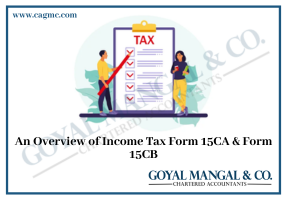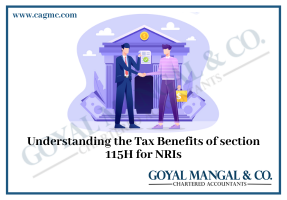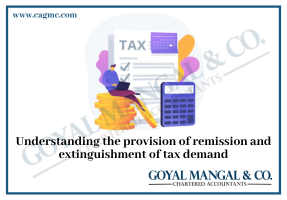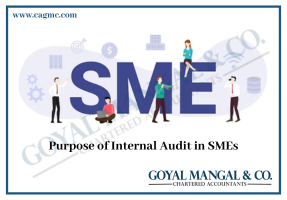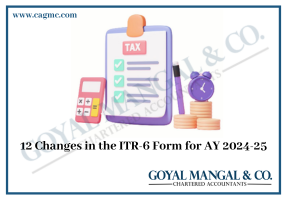
Tax planning is a financial procedure that looks at taxation options to determine the conduct of business to reduce or eliminate taxes. Tax planning is extremely important for new business entities to be set up in India and has become extremely important after increasing market competition and post-pandemic implications. To achieve the desired goal, professional tax planning is required for a new business. In this article, we will discuss tax planning while setting up of a business with reference to the nature of business.
|
Table of Contents |
Tax planning while setting up new business
India’s growing economy and available workforce must lead the way to incorporate a new business without much difficulty. However, for a successful business, it is better to opt for tax planning. The market is becoming competitive and it is not an easy task to beat the competition and grow in the market. With the tech boom, the business is gaining ground in the search engines and becoming quite competitive and it is not an easy task to beat the competition and grow the business at the same time.
Key considerations for tax planning while setting up new business
Tax planning is an essential aspect of setting up new business. It involves analyzing the tax implications of the business structure and activities to minimize tax liability while complying with tax laws. Here are some key considerations for tax planning while setting up new business:
- Choose the right business structure: The business structure you choose will have significant tax implications. For example, a sole proprietorship has different tax requirements than a corporation. Tax planning involves choosing the right structure to minimize tax liability while providing the necessary legal protections.
- Consider location and tax laws: Different countries and states have different tax laws. Tax planning involves considering the tax implications of the location of the business and structuring it in a way that minimizes tax liability. This may involve taking advantage of tax incentives, such as tax credits or deductions for research and development, or locating the business in a tax-friendly jurisdiction.
- Understand tax obligations: Tax planning involves understanding the tax obligations that come with setting up a business. This includes registering for a tax identification number, collecting and remitting sales taxes, and paying estimated taxes. Failure to comply with tax obligations can result in penalties and interest charges.
- Take advantage of tax deductions and credits: Tax planning involves identifying all available tax deductions and credits that the business may be eligible for. This may include deductions for expenses related to the business, such as rent or supplies, or tax credits for hiring veterans or investing in renewable energy.
- Plan for the future: Tax planning is not a one-time event; it is an ongoing process. It involves considering the tax implications of future business activities, such as expanding operations or hiring new employees. Tax planning should be revisited periodically to ensure that the business is taking advantage of all available tax benefits and complying with tax laws.
Importance of tax planning for a new business
New business tax planning helps entrepreneurs and business professionals achieve their financial goals. It is not only enough to invest a good amount of funds to run a business, but the organization also needs to maintain a positive cash flow. Several advantages of tax planning for a new business are as below:
- Systematic tax planning is necessary for the functioning of the business smoothly.
- Tax planning protects the business from legal mandates and problems.
- A business can significantly reduce its tax liability with a robust tax planning strategy. The money saved in taxes could be used for stunning investments.
- Simply put, tax planning helps businesses save money. When starting a new business, these savings can be beneficial.
- Tax planning will help businesses make the most of tax credits and rebates.
Sole Proprietorship
If a single individual owns and operates a business, it is called a sole proprietorship. In this case, the business income and expenses are reported on the owner’s tax return. As a sole proprietor, you have full control of your business, and it is relatively easy to start and run. However, since the business and the owner are treated as a single entity, the owner is personally liable for any debts or legal issues that arise from the business.
Tax planning for sole proprietorships should focus on maximizing deductions and minimizing taxable income. For example, a sole proprietor can deduct business expenses such as rent, utilities, and office supplies. Additionally, they can deduct home office expenses if they work from home. It is important to keep accurate records of all business expenses to maximize deductions.
Partnership
A business owned and operated by two or more individuals is called a partnership. Each partner reports their share of the business income and expenses on their tax return. Partnerships offer several benefits, including shared responsibility for the business and the ability to pool resources and skills. However, like sole proprietorships, partnerships have unlimited liability, which means each partner is personally liable for the debts and legal issues that arise from the business.
Tax planning for partnerships should focus on maximizing deductions and minimizing taxable income for each partner. Partnerships can deduct business expenses such as rent, utilities, and office supplies. Additionally, they can deduct salaries paid to partners and employees. It is important to keep accurate records of all business expenses to maximize deductions.
Limited Liability Company (LLC)
An LLC is a business structure that provides the benefits of a corporation and a partnership. LLCs are taxed like partnerships, and each member reports their share of the business income and expenses on their tax return. LLCs offer several benefits, including limited liability for members, flexibility in management structure, and pass-through taxation.
Tax planning for LLCs should focus on maximizing deductions and minimizing taxable income for each member. LLCs can deduct business expenses such as rent, utilities, and office supplies. Additionally, they can deduct salaries paid to members and employees. It is important to keep accurate records of all business expenses to maximize deductions.
Corporation
A corporation is one having a legal entity or personality separate from its owners. Corporations are taxed separately from their owners, and they must file their tax returns. Corporations offer several benefits, including limited liability for owners, perpetual existence, and the ability to raise capital through the sale of stocks.
Tax planning for corporations should focus on maximizing deductions and minimizing taxable income. Corporations can deduct business expenses such as rent, utilities, and office supplies. Additionally, they can deduct salaries paid to employees. It is important to keep accurate records of all business expenses to maximize deductions.
Non-profit
Non-profit organizations are tax-exempt under the Internal Revenue Code. Tax planning for non-profits should focus on maintaining tax-exempt status and maximizing deductions. Non-profits can deduct expenses such as salaries paid to employees, office supplies, and rent. It is important to keep accurate records of all business expenses to maximize deductions.
Final words
Tax planning is an essential part of setting up a business. The nature of the business will dictate the tax planning strategies that are most appropriate. Business owners should consult with a tax professional to develop a tax plan that maximizes deductions and minimizes taxable income. Accurate record-keeping is critical to ensuring that all eligible deductions are taken. With careful planning, businesses can minimize their tax liability and keep more of their hard-earned profits.


